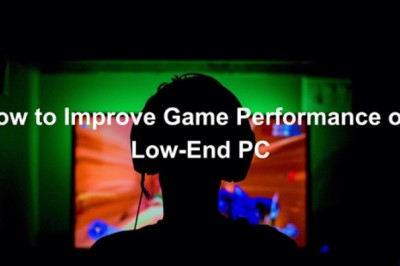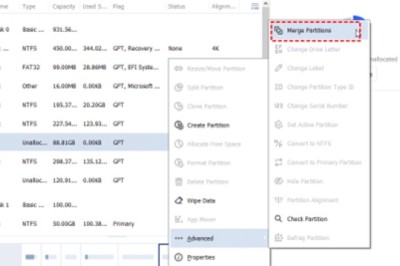views
Benzodiazepines might be heralded as responsible for the latest epidemic, but that doesn’t mean these drugs are only dangerous on their own terms. While most people know the most popular benzodiazepine under the brand name Xanax, multiple benzos are on the market, and people must understand their risks. Here are the risks associated with Klonopin, specifically when the prescription medication is mixed with alcohol.
An Underrated Benzo
Klonopin is a brand-name drug for the benzodiazepine clonazepam. This drug is typically prescribed as anti-anxiety medication to help control convulsions from seizures and muscle spasms. The drug is also used to treat epilepsy, specifically in children. It is very addictive, especially because of its long-acting effects, lasting between six and 24 hours. The drug’s half-life lasts for up to two days. Because of this, the medical community considers it a high-potency benzodiazepine. Despite the brand-name Klonopin, which is less recognizable compared to Xanax, the drug poses a real abuse and addiction threat. It is also worth noting that other brand names for clonazepam include Rivotril, which can come in a tablet or liquid form.
According to the Food and Drug Administration (FDA), clonazepam is the second most prescribed benzodiazepine in the United States after alprazolam (Xanax). Although medical professionals typically recommend benzodiazepines for short-term use, the FDA updated its warnings for all benzodiazepines. The drugs have such a high abuse potential that they must get a black box warning, the highest warning the FDA gives regarding high abuse and death risks.
Unintended Consequences
The problem with these warnings concerns the risks involving benzodiazepines such as Klonopin and the unintentional side effects of misuse. According to the National Institute on Drug Abuse (NIDA), unintentional overdose deaths can occur when a drug is taken accidentally or taken beyond the intended dosage amount by accident. Sometimes this can occur simply by taking deadly amounts of Klonopin either illicitly or by abusing a prescription amount. But other times, this can include co-occurring misuse, such as mixing Klonopin with alcohol.
Like Klonopin, alcohol is a central nervous system (CNS) depressant, which slows down brain activity. This means that when people use the two together, it is not too different from taking too much Klonopin on its own. Because of this, mixing alcohol with Klonopin is just as dangerous as if someone overdoses on too much alcohol or too much Klonopin. In both cases, the body can overdose on central nervous system depressants with all the associated risks. Unfortunately, the likelihood and reality of mixing alcohol and benzos like Klonopin are much more common than we think.
Even before the heightened risk of benzo use came into the picture (1996-2013), 20% of benzo-related deaths involved alcohol. Since then, benzodiazepine and alcohol use has iincreased, meaning the possibility of mixing both drugs is more dangerous than ever.
Addressing the Risk
Many recent discussions have been taking place, revisiting the risk and benefits of benzodiazepine prescriptions. These drugs are certainly dangerous on their own accord, but they become much more dangerous when interacting with other common substances, such as alcohol. Klonopin poses challenges in the medical community, especially because it is not without its benefits.
One example is detox programs that use Klonopin to treat alcohol withdrawal symptoms. However, this occurs in a controlled medical environment and never by mixing the two substances. Introducing the risk of combining these two accessible substances is an important step in helping either ourselves or those we love to seek the necessary treatment to overcome substance use disorders, especially before the likelihood of mixing these two substances becomes a reality.
Sources
Yale Medicine. (2019 Dec 11). Are Benzodiazepines the New Opioids? Retrieved https://www.yalemedicine.org/news/benzodiazepine-epidemic
Delphi Health Group. (n.d.) Klonopin Addiction Treatment Guide. Retrieved https://delphihealthgroup.com/benzodiazepines/klonopin/
National Library of Medicine. (2022 September 1). Clonazepam. Retrieved https://www.ncbi.nlm.nih.gov/books/NBK556010/
Mind. (2021 April). Sleeping Pills and Minor Tranquilizers: Comparing Benzodiazepines. Retrieved https://www.mind.org.uk/information-support/drugs-and-treatments/sleeping-pills-and-minor-tranquillisers/comparing-benzodiazepines/
FDA. (2020 Feb 23). FDA Requiring Labeling Changes for Benzodiazepines. Retrieved https://www.fda.gov/news-events/press-announcements/fda-requiring-labeling-changes-benzodiazepines
NIH. (2017 Feb 13). Intentional vs. Unintentional Overdose Deaths. Retrieved https://nida.nih.gov/research-topics/treatment/intentional-vs-unintentional-overdose-deaths
NIH. (2018 Mar.) What Are Prescription CNS Depressants? Retrieved https://nida.nih.gov/publications/drugfacts/prescription-cns-depressants
Delphi Health Group. (n.d.). Guide to Alcohol Detox: Severity, Dangers, and Timeline. Retrieved https://delphihealthgroup.com/alcohol/detox/
University of California San Francisco. (2019 Dec 13). Problem Drinkers Have Higher ‘Benzo’ Use, UCSF-Kaiser Permanente Study Shows. Retrieved https://www.ucsf.edu/news/2019/12/416196/problem-drinkers-have-higher-benzo-use-ucsf-kaiser-permanente-study-shows
SingleCare. (2022 Feb 24). Alcohol Statistics 2022. Retrieved https://www.singlecare.com/blog/news/alcohol-statistics/#:~:text=More%20than%2014%20million%20U.S.,By%20Lindsay%20Modglin%20%7C%20Feb.
NIH. (2022 June 27). Benzodiazepine Toxicity. Retrieved https://www.ncbi.nlm.nih.gov/books/NBK482238/
UMSL Daily. (2022 January 7). December graduate Tracy Pacini works to reduce benzodiazepine use for DNP project. Retrieved https://blogs.umsl.edu/news/2022/01/07/tracy-pacini/
Oxford Academic. (2011 February). Comparison of Two Oral Symptom-triggered Pharmacological Inpatient Treatments of Acute Alcohol Withdrawal: Clomethiazole vs. Clonazepam. Retrieved https://academic.oup.com/alcalc/article/46/1/68/172037
Related: Rehab Recovery

























Comments
0 comment